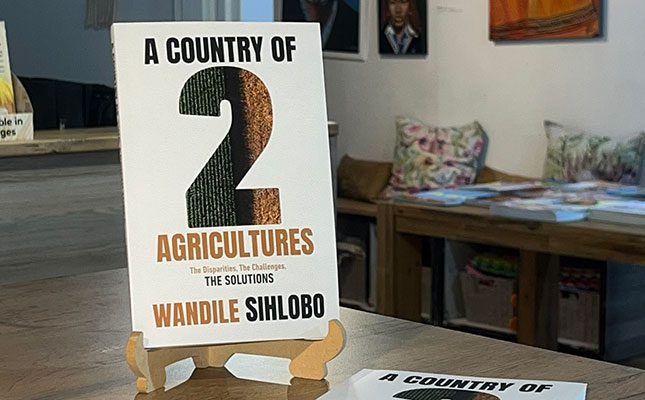
In his second book, titled A Country of Two Agricultures, Wandile Sihlobo identifies bottlenecks in the agricultural value chains that are sustaining the duality problem in the country.
These range from the deteriorating farm and off-farm infrastructure, institutional and market failures, land and finance hunger amongst black farmers, and the biosecurity threats that are compounded by climate change and limited access to technologies.
Very boldly and insightfully, Sihlobo then accounts for the positive contribution of the democratic government on the trade front. He provides concrete evidence of how agriculture has grown and become a globally competitive sector in the past 25 years.
He attributes this success to progressive and market-friendly trade policies that have led to the opening of new agricultural export markets, an area in which government continues to prioritise expanding export opportunities for farmers under the leadership of Agriculture, Land Reform and Rural Development Minister Thoko Didiza.
Illustrating the depth of his understanding of the sector, Sihlobo outlines fault lines in the execution of the land reform programme and provision of basic services by municipalities. He points out the weak land administration system and the poor state of agricultural roads and municipal markets.
Validating his arguments, Sihlobo uses a practical case of a young farmer who operates on a land reform farm in Gauteng, where much still needs to be done to support and nurture his growth and graduation to a commercial level.
Relying on his research skills and ability to generate insights from economic data, Sihlobo assists readers in understanding factors that underpin the structural and systemic faults existing in agriculture.
In the book, he assists readers in appreciating the intricacies brought by events like COVID-19 and the Russia-Ukraine conflict in regressing the gains of the agriculture sector on job creation, investments, and poverty alleviation.
Unlocking growth
Sihlobo confesses that part of his intention for writing the book is to advise policymakers to focus on practical solutions that will unlock growth in the sector.
He draws from his experience and involvement in the Presidential Economic Advisory Council, ministerial task teams, and other strategic roles he occupies.
He writes there is a need to better communicate the goals and implementation approaches of the Agriculture and Agro-processing Master Plan (AAMP) to farmers on the ground.
Sihlobo acknowledges that the AAMP has the general support of agribusiness, however, he urges that greater speed and focus should be channelled to critical areas like blended finance, biosecurity, infrastructure repairs and expansion, and market access.
Another area of strategic focus that he touches on is the possible improvement of the efficiency of land administration by bringing in the private sector to assist government in executing the land reform programme.
A quick win that Sihlobo identifies is the land donation by agribusinesses and other landowners to upscale the redistribution of land as well as the provision of title deeds to selected farmers.
Confronting Policies
Sihlobo confronts some policy decisions that have been implemented by government. For example, he writes that the exclusion of black farmers from commercial agriculture cannot be solely blamed on apartheid and the colonial era, but the democratic government must also take responsibility for its failures.
Furthermore, he argues that it was a policy mistake to support smallholder and subsistence farmers at the start of the COVID-19 lockdowns with the R1,2 billion special COVID- 19 fund.
Instead, he argues, the department should have supported the wine and tobacco farmers who were impacted by the temporary sales ban.
Lastly, Sihlobo contends that farmer support programmes should provide equal opportunities for all farmers, thereby promoting the co-existence of small-scale and large-scale farmers.
In summary, he has written an insightful book that provides clear and innovative solutions to the problems currently facing the sector. He also confronts some of the policy positions, and argues it is important to ensure that such policies are geared towards farmers’ needs.
Dr Sifiso Ntombela is an agricultural economist and vice-president of the Agricultural Economics Association of South Africa.











